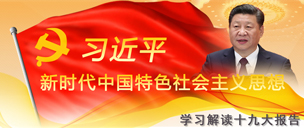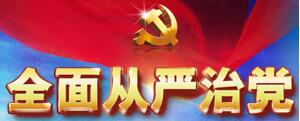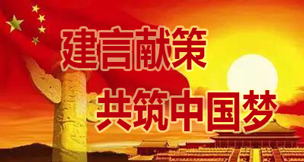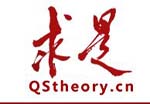
【張文木評(píng)論】
這篇文章說明美國戰(zhàn)略學(xué)者開始成熟,因?yàn)樗麄冞x擇的研究對(duì)象開始成熟。造成這種現(xiàn)象的原因是美國的衰落,國破則頭腦清,中國宋明末期的衰落都造成中國文化自覺的上升。目前美國戰(zhàn)略界開始認(rèn)識(shí)到是中國親美公知對(duì)美國的愚忠害了美國,開始鄙視并拋棄他們。注意這段∶
Unlike many of his colleagues in the Beijing foreign policy scene, he does not frequent seminars and workshops with Western counterparts. He has remained noticeably apart from the "jet-set" of Beijing talking heads that are racking up(上貨)thousands of airline miles with monthly visits to various think tanks in Washington. 文章用“racking up”(上貨)這個(gè)貶義詞來表達(dá)美國戰(zhàn)略學(xué)界對(duì)一天到晚往美國跑的公知的鄙視。 謊言說一千遍就會(huì)變成真理,可只有把謊言當(dāng)真理的人,才能將謊言說一千遍。開始美國人在利用這些人,可后來就真信他們了。他們英文好,還拿了美國的錢,可他們喋喋不休地把美國精英給忽悠倒了。通過這篇文章可看出美國戰(zhàn)略學(xué)界現(xiàn)在悔的腸子都青了,并因此恨死他們。 在“一手交錢,一手交貨”的特朗普治下,將來這些人的好日子到頭了。同樣中國面臨的真正挑戰(zhàn)也就來了。因?yàn)橹挥凶鹬貙?duì)手的敵人才是可怕的。 圖片來源:Wikimedia/DoD photo by Linda D. Kozaryn 張文木是中國外交政策 爭論中的一個(gè)重要人物 美國《國家利益》雜志網(wǎng)站2015年4月11日文章 【全文提要】 張文木是中國外交政策爭論中的一個(gè)重要人物。 不像許多在中國外交政策領(lǐng)域的他的同事,他并不是很經(jīng)常和西方的那些同行們進(jìn)行研討和切磋。他總是和那些每月飛行數(shù)萬里到華盛頓與不同的智庫交流的北京官方發(fā)言人的浮夸講究保持明顯的距離。 張?jiān)诒焙剑辞氨本┖娇蘸教齑髮W(xué))工作,導(dǎo)致他缺失了許多其他著名中國戰(zhàn)略家所擁有的清華,北大和復(fù)旦的學(xué)術(shù)背景。不過這點(diǎn)也正好幫他樹立了“真正的中國戰(zhàn)略家”的名聲,因?yàn)樗芙^被西方的機(jī)構(gòu)和教條所迷亂和吸引。 張毫無疑問地在新世紀(jì)的中國戰(zhàn)略史上留下了印記。他是中國第一批真正的“海軍至上主義者”之一,早在其他學(xué)者愿意支持這個(gè)新觀念之前他就建議中央政府建造航空母艦。他2009年出版的《論中國海權(quán)》提出,中國的全球商業(yè)力量必須要有一個(gè)可以用來支撐它的強(qiáng)大海軍,而也許正是這一說法為他贏得了“中國馬漢”的稱號(hào)。 張的觀點(diǎn)看起來似乎不能夠反映通常意義上的那種追求圓滑和政治正確的中國官方外交政策。雖然他也許會(huì)被描述成中國戰(zhàn)略家中的“鷹派人物”,但是張本人也警告了中國不應(yīng)該錯(cuò)誤追求其他大國力量已開始著手追求的那種“過度擴(kuò)展”。然而,他的作品像是一個(gè)及時(shí)的警鐘,提醒中國,如果中國不重復(fù)莫斯科四面出擊,分散力量的前車之鑒,中國將會(huì)更加生機(jī)勃勃。 原標(biāo)題:當(dāng)心:中國可能在亞洲復(fù)制一個(gè)“克里米亞” 張文木,是中國外交政策爭論中的一個(gè)重要人物。 不像許多在中國外交政策領(lǐng)域的他的同事,他并不是很經(jīng)常和西方的那些同行們進(jìn)行研討和切磋。他總是和那些每月飛行數(shù)萬里到華盛頓與不同的智庫交流的北京官方發(fā)言人的浮夸講究保持明顯的距離。 張?jiān)诒焙剑辞氨本┖娇蘸教齑髮W(xué))工作,導(dǎo)致他缺失了許多其他著名中國戰(zhàn)略家所擁有的清華,北大和復(fù)旦的學(xué)術(shù)背景。不過這點(diǎn)也正好幫他樹立了“真正的中國戰(zhàn)略家”的名聲,因?yàn)樗芙^被西方的機(jī)構(gòu)和教條所迷亂和吸引。 張毫無疑問地在新世紀(jì)的中國戰(zhàn)略史上留下了印記。他是中國第一批真正的“海軍至上主義者”之一,早在其他學(xué)者愿意支持這個(gè)新觀念之前他就建議中央政府建造航空母艦。他2009年出版的《論中國海權(quán)》提出,中國的全球商業(yè)力量必須要有一個(gè)可以用來支撐它的強(qiáng)大海軍,而也許正是這一說法為他贏得了“中國馬漢”的稱號(hào)。 即使許多張的觀點(diǎn)現(xiàn)在看起來像是中國戰(zhàn)略家的傳統(tǒng)觀點(diǎn),他仍有其獨(dú)特的方法,并時(shí)常清晰地強(qiáng)調(diào)他那些違反常規(guī)的觀點(diǎn)。例如,在2009年的時(shí)候,他曾提到中國應(yīng)該避免任何在南中國海爭端的重要介入,因?yàn)樗^察到這樣可能會(huì)分散與臺(tái)灣統(tǒng)一的中心目標(biāo)。 張一直以來都是個(gè)多產(chǎn)的作家。他的一篇長文首次發(fā)表在中國著名學(xué)術(shù)雜志“國際政治”2014年出版的期號(hào)上。而這篇文章之前又正在被重新出版,這暗示了它的重要性。而這篇文章的名字是“烏克蘭事件的世界意義及其對(duì)中國的警示”。 較早一版的龍眼新聞雜志專欄透露到,另一位知名中國戰(zhàn)略家曾暗示普京如今在中國廣受追捧。而在同一個(gè)專欄,我個(gè)人也強(qiáng)調(diào)到,至少還有一些中國軍事學(xué)者也同樣追捧俄羅斯在2014年對(duì)于克里米亞半島的大膽占領(lǐng)。 在深入探索張文木關(guān)于烏克蘭危機(jī)的思想的過程中,這一版的龍眼挖掘到一些更為深入的理解,而這些理解正是關(guān)于發(fā)生在東歐的重要事件對(duì)迅速演變的亞太地區(qū)局勢(shì)的沖擊。 根據(jù)張的表述,俄羅斯在與西方的斗爭中取得了重要的勝利,同時(shí)他也表示普京是個(gè)很厲害的戰(zhàn)略家。張毫不掩飾地表示烏克蘭危機(jī)是中國收獲的一個(gè)重要經(jīng)驗(yàn)教訓(xùn)。張認(rèn)為莫斯科的勝利是因?yàn)閷?duì)于俄羅斯來說,克里米亞是生死攸關(guān)的問題,而對(duì)于歐洲來說,克里米亞只是眾多重大問題的其中之一。“從克里米亞的角度來說,俄羅斯會(huì)運(yùn)用它的所有資源來源,而西方則不會(huì)。”張認(rèn)為許多蘇聯(lián)領(lǐng)導(dǎo)人不是太魯莽(例如赫魯曉夫)就是太理想主義(例如戈?duì)柊蛦谭颍撬瑫r(shí)堅(jiān)持認(rèn)為,普京繼承了斯大林的現(xiàn)實(shí)主義和“克制”。 在評(píng)價(jià)俄羅斯的地緣潛能時(shí),張推測(cè)說,“......從歷史的觀點(diǎn)上說,俄羅斯的力量本來可能不會(huì)被投送到很遠(yuǎn)的地方,但是就投送到東邊的烏克蘭來說,并不是什么難事。”他更暗示到,普京的崛起,多多少少,都是不可避免的,因?yàn)?ldquo;......處在危機(jī)中的國家會(huì)誕生屬于它自己的強(qiáng)大領(lǐng)導(dǎo)人。”但是他解釋說,普京成功阻止了北約向東擴(kuò)張的重要基礎(chǔ)還是因?yàn)槿窆沧R(shí)的形成。由于中國也面臨相似的地緣沖擊,張斷言,中國也許也應(yīng)該發(fā)展這種強(qiáng)大的國民意識(shí)。 既然現(xiàn)在普京阻止了北約向東前進(jìn),張寫到“......西方開始將他們的目光放在中國身上。他們想從中國身上得到一個(gè)答案:到底什么是中國的底線?而對(duì)于中國來說,對(duì)中國而言,西方人最大的冒失便是他們極度輕狂。” 當(dāng)轉(zhuǎn)到更為迫切的發(fā)展中的中俄關(guān)系的問題上時(shí),張很明確地表示:“在新世紀(jì)美國外交政策的最大錯(cuò)誤便是將中國推向俄羅斯。”在這點(diǎn)上,他觀察到一個(gè)很有趣的地方:“如果不是中俄邊界的穩(wěn)定性,俄羅斯在2014年占領(lǐng)克里米亞的行為是不可想象的。” 他認(rèn)為近年來的美國領(lǐng)導(dǎo)人,諸如喬治·布什總統(tǒng)或者希拉里·克林頓國務(wù)卿“只會(huì)紙上談兵而無任何戰(zhàn)略頭腦。”在他看來,美國的“亞洲中心戰(zhàn)略”代表著“美國企圖回到1950年代在中國周邊制造包圍圈的舉動(dòng)。” 這個(gè)中國戰(zhàn)略家認(rèn)為烏克蘭危機(jī)之后世界政治將明晰化。在這一方面,他對(duì)他的那些還秉持著“只要嚴(yán)格堅(jiān)持法律......就會(huì)慢慢解決這些問題”觀點(diǎn)的中國同事們保持著批判的態(tài)度。 同樣地,他也不認(rèn)為中國應(yīng)該相信“軟實(shí)力”。他寫道:“......俄羅斯人并不信任‘軟實(shí)力’,反而寧愿直接任用坦克去解決問題。”他同時(shí)十分反對(duì)那些堅(jiān)持“別跟美國斗,美國是老大,跟老大斗是沒好結(jié)果的”的中國學(xué)者的觀點(diǎn)。他強(qiáng)調(diào)道,“這種想法是謬誤的”。為了闡明這種中國式服從政策的謬誤,他指出在美國的國家發(fā)展史過程中,美國并沒有回避與當(dāng)時(shí)的霸權(quán)英國直接沖突,并且得到了好結(jié)果。他警告他的國民應(yīng)該與綏靖主義作斗爭,他認(rèn)為如果中國向西方屈服,那么西方必然會(huì)更加得寸進(jìn)尺。至于說華盛頓,他引用了來自毛澤東的話“......美國......看起來是很可怕,其實(shí)只是個(gè)紙老虎......” 在文章最后的總結(jié)處,他認(rèn)為中國應(yīng)該尋求更加強(qiáng)有力的外交手腕,因?yàn)樗^察到現(xiàn)在貿(mào)易遍布全球,并且受到政治的深深影響。然而,他有理有據(jù)地認(rèn)為現(xiàn)今中國需要一個(gè)“安全空間”,沒有這個(gè)“安全空間”,中國是不會(huì)真正安全的。這個(gè)空間應(yīng)該用來保護(hù)中國東部沿海的“黃金地帶”,張還將臺(tái)灣看作是中國安全的重要瓶頸,因?yàn)樗鼱恐屏酥袊I狭α康娜姘l(fā)展,而中國海上力量的全面發(fā)展就是這個(gè)“黃金地帶”和中國終極安全的重要保障。他問道“我們是否可以實(shí)現(xiàn)臺(tái)灣統(tǒng)一的目標(biāo)呢?”同時(shí)他自己回答說:“是的,我們可以,在烏克蘭危機(jī)中,普京可以將他的安全地帶一路推進(jìn)到克里米亞南部,但是北約卻沒有任何辦法,因?yàn)榭死锩讈唽?duì)北約的力量而言已是鞭長莫及......” 綜上所述,張的觀點(diǎn)看起來似乎不能夠反映通常意義上的那種追求圓滑和政治正確的中國官方外交政策。雖然他也許會(huì)被描述成中國戰(zhàn)略家中的“鷹派人物”,但是張本人也警告了中國不應(yīng)該錯(cuò)誤追求其他大國力量已開始著手追求的那種“過度擴(kuò)展”。然而,他的作品像是一個(gè)及時(shí)的警鐘,提醒中國,如果中國不重復(fù)莫斯科四面出擊,分散力量的前車之鑒,中國將會(huì)更加生機(jī)勃勃。 原 文 Get Ready: China Could Pull a 'Crimea' in Asia Zhang Wenmu [張文木] is a major fixture of the Chinese foreign policy debate. Unlike many of his colleagues in the Beijing foreign policy scene, he does not frequent seminars and workshops with Western counterparts. He has remained noticeably apart from the "jet-set" of Beijing talking heads that are racking up(上貨) thousands of airline miles with monthly visits to various think tanks in Washington. Toiling away at Beihang University (previously the Beijing University of Aeronautics and Astronautics), he lacks the academic pedigree of more famous Chinese strategists at Tsinghua, Peking, or Fudan Universities. But maybe this has only increased his reputation as a "real Chinese strategist" that refuses to be dazzled and charmed by Western institutions and doctrines. Zhang has unquestionably left a mark on Chinese strategy in the new century. He was one of China's first genuine "navalists," calling for Beijing to build an aircraft carrier well before other scholars were willing to get behind the new approach. His 2009 book On Chinese Sea Power [論中國海權(quán)] argues that Chinese global commercial power must have a formidable navy to support it, which may one day earn him the title of “China's Mahan.” But even though many of Zhang's ideas now seem like conventional wisdom among Chinese strategists, he still has a unique approach and will occasionally articulate positions that go quite against the grain. For example, in 2009 he cautioned that China should avoid any major involvement in the South China Sea dispute, observing that such an approach might distract from the central goal of unification with Taiwan. Zhang continues to be a prolific writer. A lengthy essay of his appeared in a late 2014 issue of the prestigious Chinese academic journal International Politics[國際政治]. The essay was being republished, suggesting its importance. Its title is “The Meaning of the Ukraine Events for the World and also their Warning to China.” An early edition of this Dragon Eye column revealed another eminent Chinese strategist suggesting that Putin was now very widely admired among Chinese. In that same column, I also demonstrated that at least some Chinese military thinkers similarly admired Russia's bold seizure of Crimea in early 2014. In probing the thoughts of Zhang Wenmu on the Ukraine Crisis, this edition of Dragon Eye seeks for a deeper understanding of the impact of the major events in Eastern Europe on the evolving situation in the Asia-Pacific. According to Zhang’s rendering, Russia has won a major victory against the West and Putin is a master strategist. Zhang is not shy about proclaiming the Ukraine Crisis as affording a major “經(jīng)驗(yàn)教訓(xùn)” [lesson of experience] for China. Zhang states that Moscow triumphed because for Russia, the Crimea is a matter of life and death, while for Europe it is simply one of many important issues. “For [Crimea], Russia would commit all its resources, but the West would not do so.” Zhang recognizes that many Soviet leaders were either reckless (e.g. Khrushchev) or excessively idealistic (e.g. Gorbachev), but he maintains that Putin has followed Stalin’s pattern of realism and even “克制” [restraint]. Appraising Russia’s geopolitical potential, Zhang surmises, “… historically, Russian power could not be projected very far, but as for reaching eastern Ukraine, there’s no problem at all.” He further suggests that the rise of Putin was, more or less, inevitable because “… a nation in the midst of crisis tends to produce its own vigorous leader.” But he explains that the basis of Putin’s success in “halting NATO’s eastward expansion” lies ultimately in the formation of “全民共識(shí)” [national consensus]. China may also develop such a powerful national consensus, asserts Zhang, with a similarly important geostrategic impact. Now that Putin has halted NATO’s eastern march, Zhang writes “… Westerners begin to cast their gaze upon China. They will certainly demand an answer from China: where is China’s bottom line? For China, the most offensive mistake made by Westerners is that they are extremely frivolous.” Turning to the ever more pressing issue of developing Russia-China ties, Zhang states unequivocally: “The biggest error in U.S. foreign policy in the new century has been to push China in the direction of Russia.” In that light, he makes the interesting observation that “if there had not been stability on the Chinese-Russian border, Russia’s seizure of Crimea during 2014 would been impossible to imagine.” He opines that recent American leaders such as President George W. Bush or Secretary of State Hillary Clinton “only know empty rhetoric and have no strategic sense.” In his view, the U.S. “Pivot to Asia” represents “an attempt to return to the 1950s American intention to create a ring of encirclement around China.” This Chinese strategist views the Ukraine crisis as a moment of clarity in world politics. In that respect, he is highly critical of his Chinese colleagues who maintain that “strict adherence to the law...will smoothly resolve all issues.” Likewise, he does not believe that China should put its faith in “soft power.” He writes: “… the Russian people did not rely on ‘soft power,’ but rather directly employed tanks to resolve the problem.” He also argues strongly against Chinese scholars who maintain: “…別跟美國斗, 美是老大, 跟老大斗是沒好結(jié)果的” [do not struggle against the United States. The United States is the boss. A struggle with the boss will not have a good result]. “Such thinking is mistaken,” he states emphatically. To illustrate the fallacy of a submissive Chinese policy, he suggests that during its own period of national growth, United States did not shy away from direct confrontation against then hegemon Great Britain with good results. Warning his countrymen against appeasement, he says that if China does not stand up to the West, then the West will inevitably “得寸進(jìn)尺” [given an inch, seek for a mile]. As for Washington, Zhang quotes Mao Zedong saying that “...the United States...may appear to be a huge monster, but is actually a paper tiger….” At the conclusion of the essay, Zhang seems to argue for a more muscular Chinese diplomacy, observing that trade is everywhere deeply impacted by politics. However, he is most forceful and clear in arguing that China now requires a “安全空間” [security space], without which it cannot be truly secure. This space is intended to protect China’s “黃金地帶” [golden belt] along the eastern seaboard and Zhang views Taiwan as the key bottleneck, holding in check the full development of Chinese sea power that will enable protection of this zone and ultimate security for China. Asking rhetorically if “we can achieve this goal [of unification with Taiwan],” Zhang answers his own question by saying that “yes, we can. In the Ukraine Crisis, Putin was able to extend his security zone all the way to the south of Crimea, but NATO had no recourse, because [Crimea] lay beyond the reach of its power….” As stated above, Zhang’s views likely do not represent the outlook of the majority of the Chinese foreign policy establishment, which is generally more polished and politically correct. While he might be described as a “hawk’s hawk” among Chinese strategists, Zhang himself does warn China against the wrong-headed pursuit of “過于擴(kuò)展” [excessive expansion] undertaken by the other great powers. Nevertheless, his writing still serves as a timely reminder that Beijing, should it opt to follow Moscow’s lead, could actually be much more “assertive” than pitching sand about and parading around various reefs with lightly armed cutters. Lyle J. Goldstein is Associate Professor in the China Maritime Studies Institute(CMSI) at the U.S. Naval War College in Newport, RI. The opinions expressed in this analysis are his own and do not represent the official assessments of the U.S. Navy or any other agency of the U.S. Government. 文章來源:http://nationalinterest.org/feature/get-ready-will-china-pull-crimea-asia-12605?page=2

(作者Lyle J. Goldstein系美國海軍戰(zhàn)爭學(xué)院中國海事研究所的副教授;來源:美國《國家利益》雜志網(wǎng)站)
【昆侖策研究院】作為綜合性戰(zhàn)略研究和咨詢服務(wù)機(jī)構(gòu),遵循國家憲法和法律,秉持對(duì)國家、對(duì)社會(huì)、對(duì)客戶負(fù)責(zé),講真話、講實(shí)話的信條,追崇研究價(jià)值的客觀性、公正性,旨在聚賢才、集民智、析實(shí)情、獻(xiàn)明策,為實(shí)現(xiàn)中華民族偉大復(fù)興的“中國夢(mèng)”而奮斗。歡迎您積極參與和投稿。
電子郵箱:gy121302@163.com
更多文章請(qǐng)看《昆侖策網(wǎng)》,網(wǎng)址:
http://www.kunlunce.cn
http://www.jqdstudio.net
1、本文只代表作者個(gè)人觀點(diǎn),不代表本站觀點(diǎn),僅供大家學(xué)習(xí)參考;
2、本站屬于非營利性網(wǎng)站,如涉及版權(quán)和名譽(yù)問題,請(qǐng)及時(shí)與本站聯(lián)系,我們將及時(shí)做相應(yīng)處理;
3、歡迎各位網(wǎng)友光臨閱覽,文明上網(wǎng),依法守規(guī),IP可查。
作者 相關(guān)信息
內(nèi)容 相關(guān)信息
外報(bào):張文木是中國外交政策爭論中的一個(gè)重要人物
2017-04-28? 昆侖專題 ?
? 十九大報(bào)告深度談 ?

? 新征程 新任務(wù) 新前景 ?

? 國資國企改革 ?

? 雄安新區(qū)建設(shè) ?

? 黨要管黨 從嚴(yán)治黨 ?

 又一名孫政才背后的女人:神秘女商人劉鳳洲重慶攫財(cái)錄
又一名孫政才背后的女人:神秘女商人劉鳳洲重慶攫財(cái)錄 楊昭友:國企私有化混改違憲,請(qǐng)問:鐵路私有化的法律依據(jù)在哪里?
楊昭友:國企私有化混改違憲,請(qǐng)問:鐵路私有化的法律依據(jù)在哪里? 《芳華》是在瓦解敵軍,還是在瓦解我軍?
《芳華》是在瓦解敵軍,還是在瓦解我軍?
 孟廣竹:人性 人民性 黨性
孟廣竹:人性 人民性 黨性 白鋼:要多講中國社會(huì)主義,少強(qiáng)調(diào)“特色”——社會(huì)主義本身就是一種普世價(jià)值
白鋼:要多講中國社會(huì)主義,少強(qiáng)調(diào)“特色”——社會(huì)主義本身就是一種普世價(jià)值 羅援少將提議:建設(shè)軍方轉(zhuǎn)基因監(jiān)控中心制衡農(nóng)業(yè)部 防止利益集團(tuán)綁架國家安全!
羅援少將提議:建設(shè)軍方轉(zhuǎn)基因監(jiān)控中心制衡農(nóng)業(yè)部 防止利益集團(tuán)綁架國家安全!? 社會(huì)調(diào)查 ?
圖片新聞







































